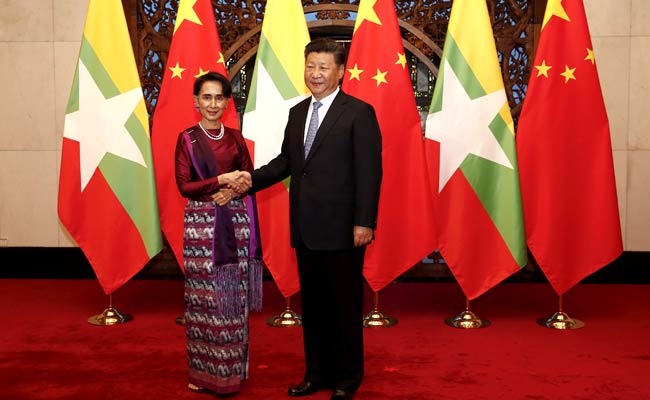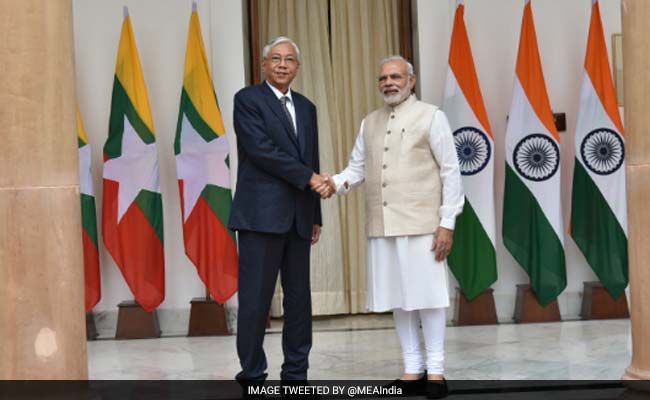There was concern in India when, as Foreign Minister, she decided to visit China before visiting India. The visit to China took place a week ago. In the meanwhile, our External Affairs Minister Sushma Swaraj visited Myanmar for a day. The President of Myanmar U Htin Kyaw has already arrived in India on a state visit. This is the President's first visit abroad after assuming office, which should be a matter of some satisfaction to India. Aung San Suu Kyi will herself visit India in October to participate in the BRICS Outreach Summit to be held in Goa in October. The Outreach Summit will include all the countries of BIMSTEC, namely Bangladesh, Bhutan, India, Myanmar, Sri Lanka, Nepal and Thailand. Hopefully, this visit will enable India to also discuss bilateral issues with her and take care of India's concern at her visiting China first.

Myanmar's State Counselor Aung San Suu Kyi and Chinese President Xi Jinping before their meeting at the Diaoyutai State Guesthouse in Beijing, China (August 19, 2016)
It must also be noted that in all our interactions with the military regime, we continued to emphasise the need for restoration of democracy in Myanmar.
China has never demonstrated any such sensitivity in dealing with dictatorial and military regimes in other countries. So it went ahead with its agenda in Myanmar even while the military was in full control. The absence of other countries including India from the scene gave it freedom to do what it wanted in Myanmar. The result was that it became the only country in the world to help Myanmar during this period and establish deep roots in that country. Even the Myanmarese were not happy with this one-sided favour they were receiving from one single country. They were keen for India especially to participate in the developmental process of Myanmar. This was brought home to me by no less a person than the then Foreign Minister of Myanmar when I was the External Affairs Minister in India. The construction of the Asian Trilateral Highway to link India's North-East to Thailand and beyond through Myanmar was a product of this understanding which we reached after this conversation. It is a pity that this prestigious project still remains incomplete.

Prime Minister Narendra Modi with Myanmar President U Htin Kyaw at Hyderabad House, New Delhi
If the North-East of India has to become the economic hub of Asia and a powerful link on its cross roads, it is important that we pay more attention to Myanmar, Thailand, and the countries beyond in East Asia, and look upon them as connected to India by land and not merely by sea. With improved relations with Bangladesh, rail and road transit through that country into East Asia is a possibility that should be looked at in the Goa meeting in October. Trade by sea with the BIMSTEC countries minus Bhutan and Nepal should also be considered coastal trade and should be given all facilities available to such trade in India.
A historic opportunity beckons India and Myanmar. Let us seize the moment.
(Yashwant Sinha is a senior BJP leader and former Union Minister of External Affairs.)
Disclaimer: The opinions expressed within this article are the personal opinions of the author. The facts and opinions appearing in the article do not reflect the views of NDTV and NDTV does not assume any responsibility or liability for the same.


